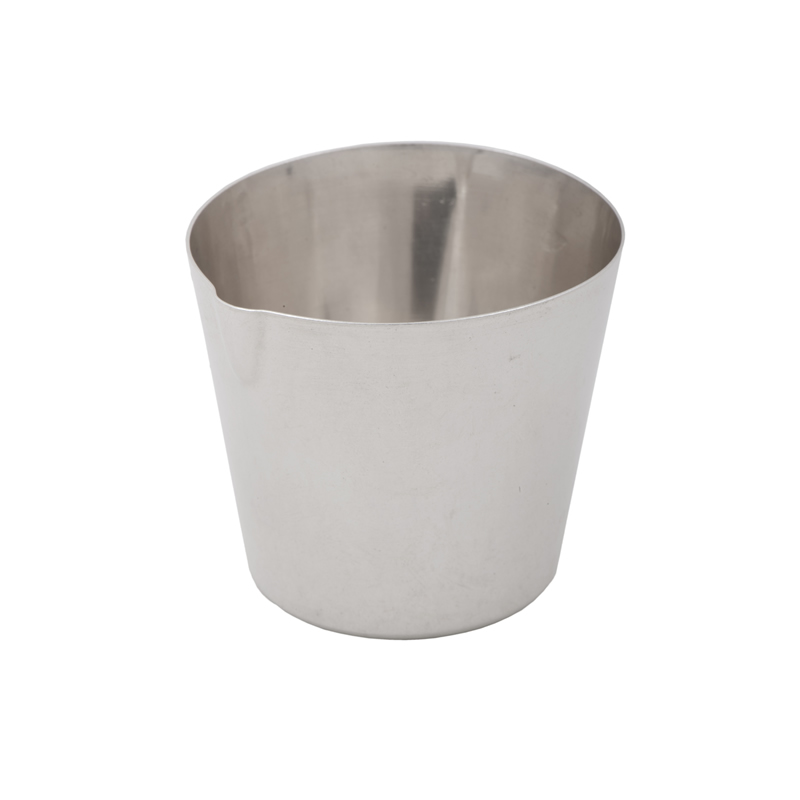88Labware Conical Crucibles – Precision Platinum Crucibles for Thermal Analysis & Material Processing
The 88Labware Conical Crucibles are expertly crafted from high-purity platinum or platinum-gold alloys, offering unmatched durability and thermal performance for laboratories requiring precision in high-temperature testing. Their distinctive conical design allows for rapid and even heat transfer, making them ideal for thermogravimetric analysis (TGA), differential scanning calorimetry (DSC), and fusion applications that demand efficient sample handling.
These crucibles feature tapered walls that concentrate heat at the base, enabling faster reactions and uniform melting of sample materials. This shape also reduces material adherence and facilitates easy removal of residues, improving turnaround time between tests. The smooth surface finish further minimizes contamination risks, ensuring accurate, repeatable results.
88Labware manufactures these conical crucibles under strict quality control protocols, ensuring uniform thickness, structural integrity, and long-term resistance to oxidation, corrosion, and thermal shock. They are suitable for both organic and inorganic material analysis, metallurgical processes, and complex compound testing in high-temperature environments.
These crucibles are compatible with a wide range of laboratory instruments, and 88Labware offers customized platinum laboratory accessories tailored to your specific research and analytical needs. Whether you work in industrial quality control, academic research, or advanced materials development, these conical crucibles deliver the precision, reliability, and durability professionals demand.
Features of Conical Crucibles
-
Shape and Design:
-
Conical shape with a tapered body ensures easy pouring and handling of materials.
-
Designed with a pointed or slightly rounded bottom to prevent spillage and facilitate easy collection of melted or processed materials.
-
-
High-Temperature Resistance:
-
Made from refractory materials like porcelain, alumina, graphite, or silica, making them highly resistant to high temperatures, typically ranging from 1000°C to over 1700°C.
-
-
Chemical Resistance:
-
Inert to most chemicals, including acids, alkalis, and solvents, making them ideal for chemical reactions and sample preparation in laboratories.
-
-
Durability:
-
Resistant to thermal shock, ensuring longevity even through repeated heating and cooling cycles.
-
Designed to withstand mechanical stresses encountered during handling or high-temperature processes.
-
-
Capacity Options:
-
Available in various sizes, ranging from small laboratory sizes (e.g., 10 ml to 100 ml) to larger industrial-scale crucibles for melting and processing materials.
-
-
Smooth Interior Surface:
-
The inner surface is typically smooth, minimizing the risk of sample contamination and making it easier to remove the contents after heating.
-
-
Versatile Applications:
-
Ideal for melting, calcining, ashing, or performing chemical reactions in laboratories, metallurgy, ceramics, and material science.
-
Suitable for use in furnaces, kilns, and Bunsen burners.
-
-
Enhanced Handling:
-
Often designed with flared edges to provide a better grip and minimize spillage when handling hot substances.
-
May be compatible with crucible tongs or holders for easy removal from heat sources.
-
-
Optional Lids:
-
Available with fitting lids to prevent contamination, oxidation, or evaporation of substances during heating.
-
-
Applications in Industry and Research:
-
Widely used in chemical analysis, metallurgy, ceramics, glassmaking, research labs, and material testing.
-



There are no reviews yet.